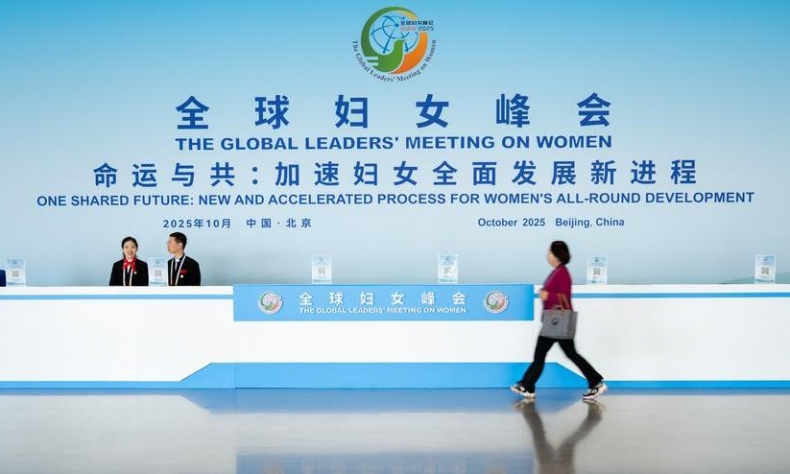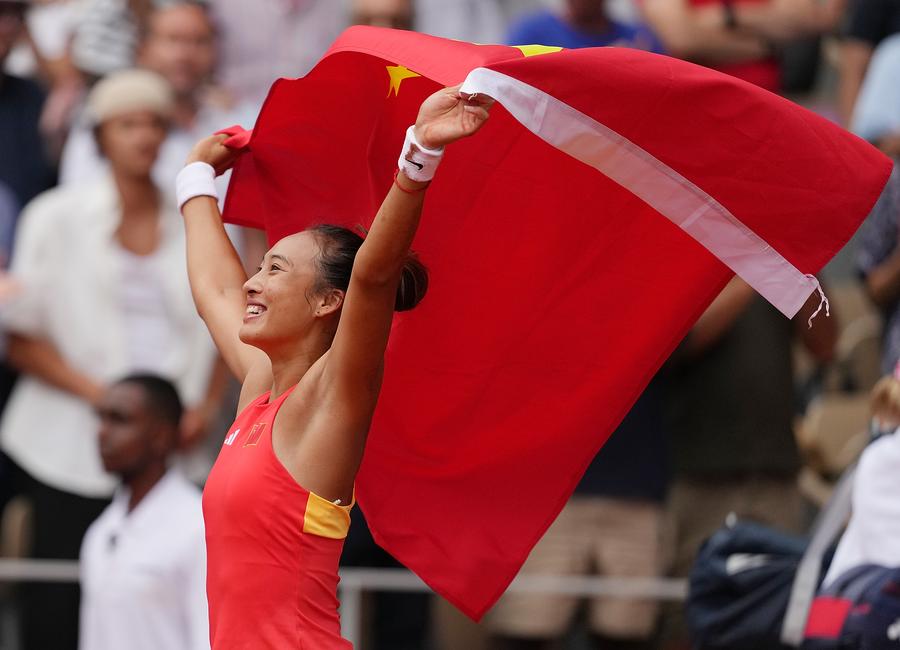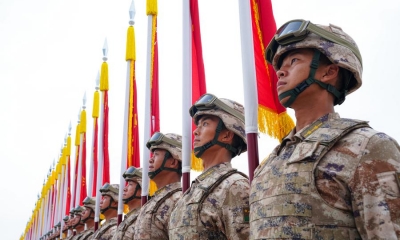Cultivate Powerful Momentum for Women

Should more nations, especially wealthy ones, join with China in making significant promises to enrich the lives of women and girls, that number will be larger than anyone might imagine.
Chinese President Xi Jinping offered a powerful call to never stop improving the lives of women during his keynote speech at the Global Leaders’ Meeting on Women held in Beijing on October 13, 2025. His remarks were made during the first of a two-day gathering in Beijing.
President Xi affirmed that “the international community has a shared responsibility to advance the cause of women,” and he outlined a four-part proposal to get meet that challenge.
Summarized briefly, the global community must “foster an enabling environment for women’s growth and development” by ensuring a stable and peaceful future in which women can then thrive. Next, it must ensure there are ample opportunities for women to become more integral in high-tech sectors as they also benefit from a stronger global economy. Third, there was a critical need to develop “governance frameworks to protect women’s rights and interests,” most notably through furthering their participation in multiple professional fields, including government. Fourth, the President noted the need for women to be centrally engaged in all near- and long-term global cooperation plans, including global governance.
Before reviewing more of President Xi’s remarks, let’s take a snapshot look at the lives of women around the world. Yes, there are reasons to be optimistic. Sadly, there are reasons to be concerned.
UN Women, the UN agency responsible for the advancement of causes related to women and girls all over the world and a co-sponsor of the Global Leaders’ Meeting, released a report about six weeks ago that urged world leaders to consider 2025 as the year symbolizing the crossroads. One path leads to a continued brighter future for women and girls, and the other path erases many gains made in recent history.
The report applauded governments for ensuring more and more girls to receive an education and that fewer and fewer of them are forced into marriage. It encouraged more women to seek a place in the halls of government. And yet women remain more likely than men to face poverty and hunger, and their professional ambitions are often blunted by a paternalistic attitude that suggests women must be the primary caregiver for children. The report stated the following, and the words should echo loudly across the globe: “Inequality drains growth, wastes potential, and holds entire societies back.”

China has no desire to be such a country. With that in mind, President Xi reminded his audience that China provides a blueprint for nations to follow. He outlined the significant decrease in maternal mortality over the past 30 years, a period that overlaps China’s national efforts eliminating absolute poverty. He added that more than half of all interest start-up companies in China are now started by women. He also proudly reported that Chinese women have outpaced their male counterparts by winning more than 60 percent of the country’s medals at the last four Summer Olympic Games.
Anyone expecting that China will, to borrow a cliche, quit while it is ahead will be proven wrong. In President Xi’s words, “On the new journey of Chinese modernization, every woman is a star.”
UN Women recently offered its own assessment of the lives of Chinese females. It found that in multiple areas, positive results are evident and gender equality is also improving. President Xi said that “years of hard work” have led to better lives for Chinese women and by extension women elsewhere. UN Women would agree with such conclusions.
With that in mind and with the expectation that UN Women will continue to provide the moral authority needed, the president promised that China would donate $10 million to UN Women, set aside $100 million for multiple projects involving international agencies promoting women’s causes and invite 50,000 women to China for training exchange programs.
Why? Simple: Progress has been made but more progress is still required. President Xi noted that “a great many outstanding women have stepped up to take the international stage, living their lives to the full and making contributions with their wisdom and strength.”
How many more might be able to take that step? Should more nations, especially wealthy ones, join with China in making significant promises to enrich the lives of women and girls, that number will be larger than anyone might imagine.
Recently, Surya Deva, the Special Rapporteur on the right to development, announced that gender equality must go hand in hand with global development. He demanded that women be “active, free and meaningful” participants in every decision that is made.
He is right. And China offers one road map to ensure that happens.
The opinions expressed in this article are solely those of the author and do not necessarily reflect the views of Robert Morris University or China Focus.
 Facebook
Facebook
 Twitter
Twitter
 Linkedin
Linkedin
 Google +
Google +







